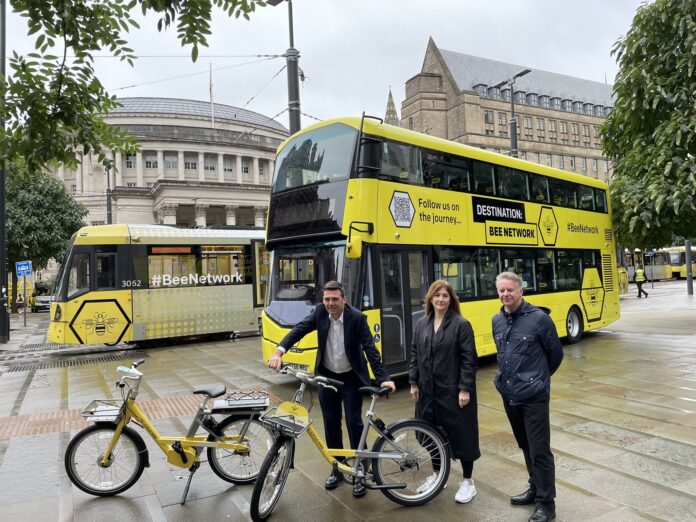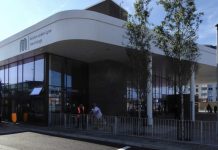Manchester’s Leaders have today published a Bus Services Improvement Plan. Once approved, the plan will be submitted to national government, marking “huge progress towards our vision for a modern, affordable and fully integrated bus service for the city region.”
The wide-ranging plans, based on customer research, will make journeys by bus quicker, cheaper, greener, more reliable, more accessible and more attractive, with the aim of improving the whole journey experience – including pre-trip information, in-journey information, customer care, ticket integration with other public transport modes, and an improved waiting environment.
Greater Manchester’s Mayor, Andy Burnham, said: “We’re on with delivering the Bee Network – our plan for a London-style transport network with London-level fares. This submission marks huge progress towards our vision for a modern, affordable, fully integrated and accessible bus service for the city region. We are well on with developing plans locally – now we need national government to support us in what is a shared ambition for better buses, on a par with what Londoners currently enjoy.
“Here we have expensive fares, longer wait times, and basic audio-visual announcements on only a tiny percentage of our buses. Decisions about which services are run are made by individual operators. The capital enjoys an integrated network, capped fares of £1.55, more modern buses and shorter waiting times. This is all intrinsically linked to levelling up – we cannot realise Greater Manchester’s full economic potential and equality of opportunity without better buses.
“As the only place outside London bringing buses back under public control, we are also uniquely placed to guarantee tangible returns for government’s investment and can do so quickly, within the period of the spending review.”
Transport Commissioner, Chris Boardman, added: “Travelling by bus is a much more confusing and frustrating experience here than in the capital and this needs to be urgently put right. Only when we have a fully-integrated, seamless Bee Network will we really be able to make the change we need here to achieve our net zero carbon targets. Buses need to be affordable, easy to use, frequent and modern to enable millions of residents here to use them to get from A to B, leaving their cars at home for every day trips.”
In Greater Manchester the average age of a bus is almost nine years compared to six years in London. Only 5% of buses have full on-board audio-visual announcements compared to 100% of buses in the capital. There are more than 100 types of ticket on buses here, compared to five in London.
The city region’s Bus Service Improvement Plan includes further proposals such as a Road Works Charter and taking advantage of moving traffic offence powers to help tackle congestion and improve bus passenger journey time and reliability across the network.
The Plan also confirms that Greater Manchester’s bus franchising will be delivered in Wigan and Bolton (subject to the outcome of the ongoing judicial review) in 2023 and then will be rolled out across all of the city-region by 2025.
Greater Manchester has already committed significant local funding to bus initiatives: £16 million per year has been allocated to maintain Our Pass – the city-region’s free bus travel scheme for 16 to 18 year olds. Subsidised bus services and other local concessions have a yearly cost of over £30 million. £134.5 million has been committed up until 2025/26 towards the establishment of a franchised bus network.
Greater Manchester is asking national government for approximately £630 million of combined capital and revenue funding to deliver its Bus Service Improvement Plans up to the end of 2024/25. The city region is also asking for £322 million of capital funding for bus infrastructure as part of its City Region Sustainable Transport bid, published last month







